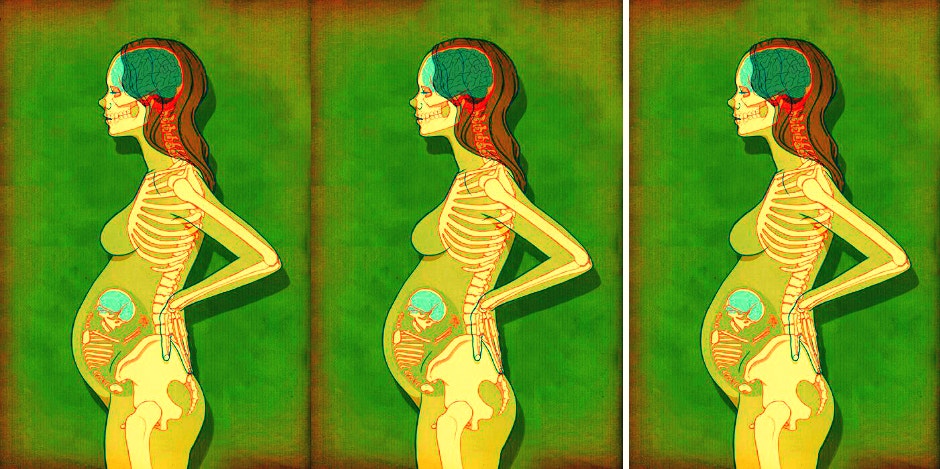9 Odd Things That Happen To Your Vagina After You Have Kids
Oh my.
 weheartit
weheartit Giving birth isn't easy, and there can be a number of complications that no one warns you about.
In a recent article in Fusion, writer Jennifer Gerson Uffalussy wrote about what happens to a woman's vagina at all the various stages in giving birth.
I've never given birth, but it was eye-opening to say the least. I asked my friend Anne about her experiences in pregnancy and giving birth (she has two sons), and she had some additional information about things that happen before, during, and after giving birth.
"When a woman becomes pregnant, her vagina largely takes on a personality of its own," says Sheryl Ross, M.D., an OB/GYN and women's health expert at Providence Saint John's Health Center in Santa Monica, CA.
Here's what doctors and experts DON'T tell you about how your vagina changes from pregnancy and childbirth:
1. Your vaginal discharge has a new consistency.
One of the earliest signs of pregnancy is an increase in vaginal discharge and this continues through out pregnancy. Normal vagina discharge (leukorrhea) is thin, clear or milky white, and mild-smelling. As pregnancy progresses, this discharge usually becomes more noticeable (often times yellow and slimy) and is heaviest at the end of your pregnancy. One of the signs that labor has begun is that your discharge will contain streaks of thick mucus or blood called show.
2. Your urine smells bad.
My friend Anne described her urine as super smelly and pungent. Your kidneys produce more urine in response to the hormones and the needs of your growing unborn baby. Some mothers are more sensitive to the smell than others. It must be particularly annoying having bad smelling pee and having to go to the bathroom so often.
3. You get what's known as "cheeseburger crotch."
There's increased blood flow to the area during pregnancy which can result in the vaginal area swelling.
4. You may develop vaginal varicose veins.
Twenty percent of women with leg varicose veins who have children, have vagina and vulva varicose veins. It used to be that there wasn't any treatment for this, but now there's a special duplex scan called TVS (transvaginal duplex scan). The ultrasound scan shows which of the veins in the pelvis are causing the problem.
Using this scan as a map, specialists can treat the pelvic veins under local anesthetic, and X-rays are used to guide the catheter into the right veins. Once in position, surgical coils are deployed into the veins, permanently closing them.
5. Your vagina stretches.
In the late second and early third trimester, the hormone relaxin is secreted. It relaxes the ligaments so they can stretch, softening and widening the cervix.
6. You can form blood blisters on your labia.
It can be distressing if you rub these the wrong way and they start to bleed. The blood blisters should go away on their own.
7. Your vagina may tear.
Most people do tear, especially first-time moms. Although the cervix dilates, sometimes the vaginal outlet still doesn't get big enough, and the vagina will tear or you'll require an episiotomy (a small cut made to the perineum). Any tears or cuts will be stitched up, and the stitches should dissolve on their own within six to eight weeks.
But the stitches are only used to repair any torn tissue in the vaginal area; they have nothing to do with how your vagina looks. In some circumstances, the tearing might be so invasive that it actually damages the rectum and the rectal muscle, in which case a specialist will be asked to administer the stitches.
8. You will probably get bruises down there.
Your entire body goes through a lot with pregnancy and childbirth, so expect lots of bleeding and soreness in your vaginal area. It may be old-fashioned, but ice-packs help with the pain.
9. You may have urinary stress incontinence.
Kegel exercises may help to tone the pelvic floor muscle, or you can opt for Laser Vaginal Rejuvenation surgery to help tighten up the muscles and give your vagina a more youthful appearance.
Nothing will ever be the same one you have gone through a pregnancy and childbirth — not your heart, not your life, and certainly not your vagina. Thank goodness all the pain and change is well worth it.

